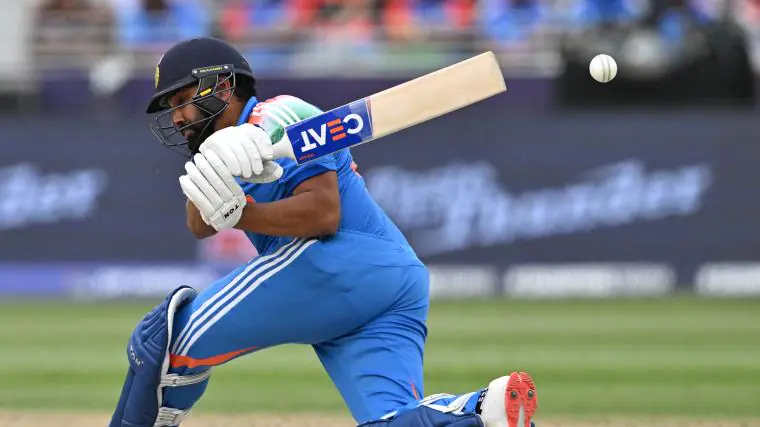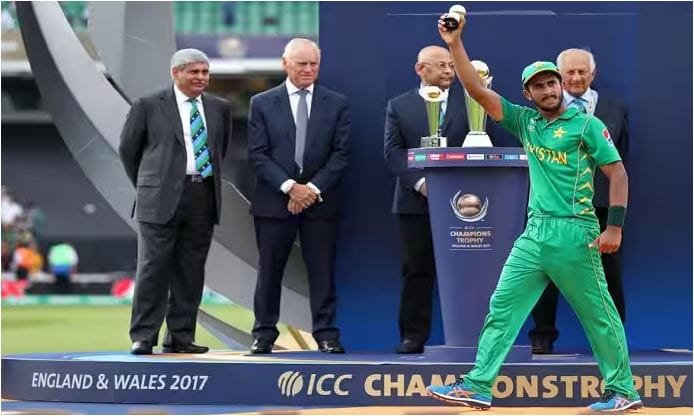
The ICC Champions Trophy stands as one of the most prestigious tournaments in world cricket, bringing together top cricketing nations to compete in a high-stakes, fast-paced format. Known as the “Mini World Cup,” this tournament is celebrated for its ability to produce thrilling encounters and showcase the very best of the sport. Beyond its competitive appeal, the Champions Trophy holds significant cultural and historical value, offering a global platform where emerging cricketing nations can test their mettle against established giants.
The inclusion of new entrants in the tournament has added a dynamic layer of unpredictability, often serving as a turning point in their cricketing journey. Teams like Bangladesh, Kenya, and Afghanistan have used the tournament to announce their arrival on the world stage, challenging traditional powerhouses and demonstrating the global reach of the game. Their stories enrich the history of the Champions Trophy, proving that cricket is a sport of opportunity and evolution.
The Champions Trophy has often been a stage for nations to make their mark on cricket history—a place where dreams are realized, and legends are born.
- The ICC Champions Trophy has introduced new teams to the global cricketing stage.
- The tournament’s inclusivity has boosted cricket’s popularity in emerging regions.
- Historical highlights include Bangladesh, Kenya, the USA, and others making their debut.
- 2025 promises another exciting chapter with Pakistan hosting the event.
Origins and Evolution of the Tournament
The ICC Champions Trophy was established in 1998 as the ICC KnockOut Trophy, with the goal of creating a high-stakes, condensed competition featuring the world’s top cricketing nations. The inaugural edition introduced a single-elimination format, setting the stage for do-or-die matches that added to the excitement. In 2002, the tournament was rebranded as the ICC Champions Trophy, adopting a round-robin format to allow teams greater opportunities to showcase their talents. While the ICC Cricket World Cup focuses on a lengthy campaign, the Champions Trophy stands out for its shorter duration and its emphasis on bringing the sport’s elite into direct competition. Over the years, the tournament has become a beloved fixture in the international cricket calendar, known for its ability to produce unexpected outcomes and unforgettable moments.
The Format: A Stage for Inclusivity
The Champions Trophy has evolved to embrace the broader cricketing community. Initially exclusive to Test-playing nations, it gradually expanded to include emerging teams, providing them a platform to compete against the best. This inclusivity has helped foster cricket’s growth, showcasing talent from less traditional cricketing regions and contributing to the sport’s global appeal. Emerging teams like Kenya and Bangladesh have used their participation to elevate their status, while established nations have faced fresh challenges, leading to more competitive and unpredictable tournaments. The format’s adaptability ensures that cricket continues to evolve, offering opportunities for new stories to unfold and creating a richer, more diverse cricketing narrative.
1998: Bangladesh Hosts the Inaugural Edition
The inaugural ICC KnockOut Trophy was held in Dhaka, Bangladesh, a landmark moment for the host nation as it came before their elevation to Test status in 2000. The tournament marked Bangladesh’s entry onto the international cricketing stage, symbolizing the ICC’s intent to develop the game in non-traditional regions. South Africa emerged victorious, defeating the West Indies in a thrilling final, but the real highlight was the opportunity for Bangladesh to showcase its potential as a cricketing nation. The event also saw key performances from players like Jacques Kallis, who played a pivotal role in South Africa’s triumph.
2000: Kenya’s Time in the Spotlight
In 2000, the ICC KnockOut Trophy moved to Kenya, signaling the ICC’s commitment to expanding cricket beyond traditional strongholds. Kenya, an Associate Member at the time, seized the opportunity to host this major event and showcase its cricketing passion. The tournament was remembered for its competitive matches and the emergence of stars like Yuvraj Singh, who debuted for India. While New Zealand ultimately claimed their first major ICC title, Kenya’s involvement underscored the value of giving emerging nations a prominent stage. This exposure played a crucial role in Kenya’s cricketing journey, culminating in their semi-final appearance at the 2003 World Cup.
2004: USA’s Brief Appearance
The 2004 Champions Trophy saw the tournament expand to include 12 teams, with the United States making their first and only appearance. This marked a significant step in the ICC’s effort to globalize cricket, though it came with challenges. As a non-traditional cricketing nation, the USA struggled against seasoned teams, highlighting the disparity in experience and infrastructure. However, their inclusion sparked interest in cricket within the region and laid the groundwork for future development initiatives. While the USA’s campaign was short-lived, their participation served as a reminder of cricket’s potential to grow in unexpected places, offering hope for the game’s future in North America.
2017: Bangladesh’s Return and Rising Competitiveness
Bangladesh’s journey from an emerging cricketing nation to a competitive force was epitomized by their performance in the 2017 ICC Champions Trophy. After years of steady progress, Bangladesh had developed a formidable lineup, blending experienced players like Shakib Al Hasan and Tamim Iqbal with emerging talents. This evolution was evident as they made it to the semi-finals for the first time in the tournament’s history, signaling their arrival on the global stage as a legitimate contender.
A highlight of their campaign was a dramatic victory over New Zealand in the group stage, where Shakib and Mahmudullah orchestrated a record-breaking partnership to chase down a challenging target. Their spirited performance against India in the semi-finals further solidified their status as a team capable of competing with cricket’s elite. For Bangladesh, the 2017 edition was not just about results; it was a statement of their growing maturity and resilience in international cricket. Their success inspired a new generation of cricketers and fans, showcasing the broader impact of fostering emerging nations within global tournaments.
2025: Pakistan Hosts a Historic Event

The 2025 ICC Champions Trophy will mark a monumental moment for cricket, as Pakistan is set to host its first major ICC tournament since 1996. This return is deeply significant, highlighting Pakistan’s resilience in overcoming years of isolation due to security concerns and showcasing its readiness to host high-profile international events. The decision also carries symbolic weight, reflecting the ICC’s confidence in Pakistan’s ability to deliver a world-class tournament.
As the defending champions, having won the 2017 edition, Pakistan enters the 2025 Champions Trophy with heightened expectations. The nation’s passion for cricket, combined with its rich history in the sport, promises an electric atmosphere for players and fans alike. However, challenges such as ensuring top-tier security and accommodating a diverse group of international visitors will test the Pakistan Cricket Board’s organizational capabilities.
This event also provides Pakistan an opportunity to strengthen its cricketing infrastructure, foster goodwill among competing nations, and inspire the next generation of players. With iconic venues like Lahore and Karachi poised to host key matches, the 2025 Champions Trophy is expected to be a landmark event, not only for Pakistan but for cricket as a whole.
Impact of New Entrants on Cricket’s Globalization
The inclusion of new entrants in the ICC Champions Trophy has played a vital role in the globalization of cricket. Teams like Kenya, the USA, and Bangladesh have used the platform to leave their mark, expanding cricket’s reach to regions where the sport was once a niche interest.
Kenya’s participation in the 2000 Champions Trophy, followed by their semi-final run in the 2003 World Cup, showcased the potential of Associate nations when given exposure at the highest level. Similarly, the USA’s inclusion in 2004, while short-lived, demonstrated the ICC’s intent to expand cricket’s footprint to non-traditional markets. Though their campaign was challenging, it set the stage for later development efforts in North America.
Bangladesh, however, stands as the most successful example of how consistent inclusion in major tournaments can transform a cricketing nation. From hosting the inaugural edition in 1998 to reaching the semi-finals in 2017, Bangladesh’s growth underscores the importance of providing emerging teams with opportunities to compete on a global stage. These moments not only elevate the teams but also inspire local fans, driving cricket’s popularity and creating pathways for future talent.
By embracing inclusivity, the ICC Champions Trophy has become more than a competition—it is a catalyst for cricket’s expansion, fostering a truly global community for the sport.
Check out the Champions Trophy Stats


